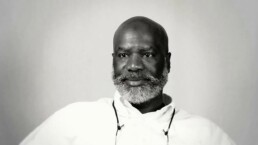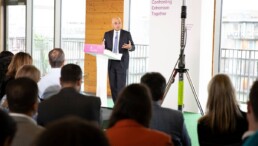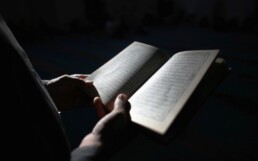Racialisation, Muslim spaces, and ethnocultural communities
In order to meaningfully discuss the ‘black experience’ in British Muslim spaces, there are a few things that we need to consider. There are many things to unpick, a few of which I attempt here:
1. Communities in the UK often characterised as religious are in fact ethno-cultural; an ethno-cultural community is one that believes it’s ethnically or culturally distinct from other groups. In what way? In its cultural practice, tradition, solidarity, and (can include) religious outlook. If these Muslim communities are in fact ethno-cultural, which ethnicity predominantly? The statistics show that the vast majority of ‘Muslim’ communities across England strongly identify as South Asian, where Islam is an aspect of their South Asian cultural heritage. (I refer to a broad South Asian characterisation here merely because the sub-cultures are similar and exhibit a greater level of solidarity to one another than to others, and I also distinguish between believers of Asian-heritage and those who primarily identify as South Asian with a deep commitment to cultural values.) This has led to the widespread conflation amongst Muslims and non-Muslims that ‘Muslim’ and ‘Asian’ are synonymous. This false conflation allows for:
(a) the perpetuation of the ‘black experience’ in communal ethnic spaces to be seen as a ‘Muslim’ problem when they’re not: “Muslim communities are racist…”, and
(b) misleads racialised ‘black’ (and other non-Asian) believers into seeking a sense of belonging with ethnic communities inaccurately taking them to be faith-based ones.
What many people overlook is that the ‘black experience’ of believers is often far more pronounced in South Asian spaces (due to its conflation with being a Muslim space) than wider society and many will affirm that the first time they experience overt racism and/or prejudice is amongst South Asian Muslims. Now if wider anti-Black prejudice affects the opportunities of the
marginalised, then prejudice and marginalisation faced by racialised believers that affects their faith is even more problematic, and that’s my interest here.
The impact of ethnic motivations on ‘Muslim spaces’ has resulted in the following:
- ‘Muslim spaces’ are highly racialised as South Asians tend to have a strong sense of ethnic identity in comparison to others. For a mundane example, “Where are you from?” is the opener for most conversations.
- Just like ‘white’ is viewed as normative in wider discourse, South Asian customs and attitudes acquire a presumed normativeness around all things ‘Muslim’. The culturally insular nature of South Asian communities also means that in reality, Muslim spaces are firstly South Asian spaces. I am not problematising this (as it’s somewhat inevitable) but it’s important to recognise for the purposes of these posts. Under these circumstances, when issues such as ‘Muslim unity’ is raised, what is meant de facto is an accord centred around South Asian norms, values, interests and approaches – both social and political, and in most situations the promotion of unity and/or the empty platitudes of “Islamic” utopianism merely maintain a (usually South Asian) ethnic dominance of the Muslim narrative, along with immigrant interests. To a far lesser extent this also happens in non-Asian communities that present a normativeness based in a historically and culturally specific ‘Immigrant Islam’.
- In the public realm, ‘Islam’ and ‘Muslim’ is highly politicised both by Muslims and non-Muslims. Due to their own misperception that merges ethno-cultural commitments and religion, they identify as Muslims through the lens of multiculturalism adopting a secular expression of Islam to maintain their interests under political liberalism.
2. Keeping these brief points in mind we must recognise then that the unity and sense of belonging many believers seek is not to be found in this context. It is a misplaced aspiration and one based on a mythical notion of sameness. The uncomfortable reality is that we all don’t share significant capital. So whilst one may support local Gujrati and Turkish communities in the preservation of their civic rights just as he would other ethno-religious groups, he’s wholly conscious that he’s not a member of their respective ethnic communities and that their mosques, schools and cultural Muslim centres exist to serve their own ethnic groups, of which he’s not a member. They may kindly permit him to use their facilities for salah at specific times (many kind Christians have also welcomed Muslims to use their facilities), but he’s not lulled into a false sense of belonging and/or community. One may acknowledge that in many situations, it’s not that they have sought to actively marginalise those unlike them but to maintain the dominance of their own cultures in the spaces they consider to be theirs.
Unfortunately, many ‘outsiders’ are easily caught up with superficial claims of unity and/or sameness, but the existence of these communities isn’t premised on faith as the overarching identity – faith is subsumed under the greater umbrella of their own ethnicity. This of course does not justify racism and colourism that may emanate from these ethnic communities, but we need to
acknowledge that these spaces simply aren’t for us, and never were they meant to be. To expect shared religious and cultural capital with those from intensely insular ethnic communities is highly misplaced. And the reason much of this is not said, although intuitively acknowledged by most, is because ‘outsiders’ are reticent of being charged with ‘disuniting’ Muslims, and many of these communities are apprehensive of exposing the reality of their ethnic commitments and allegiances.
3. Now to be clear, my point isn’t that racism/colourism doesn’t exist in such spaces, but that we need to unpick racism from ethnic preservation – is it ‘Muslims’ being racist, or South Asian’s preserving their ethnic identity which happens to include religious practices? From a point of faith-based interests in the UK both are problematic, but for very separate reasons. For a case study of this conflation: there are complaints of the ubiquity of Urdu in communal Muslim spaces such as Asian mosques or seminaries with the accusation that this marginalises non-Asians, but we fail to realise that these spaces principally exist to promote distinct cultural values and (subcontinental) Asian Islam. Even where the argument is made that it’s about denominational commitments such as Deobandism or Barelvism and not ethnicity, the reality is that these are specifically ‘ethnic’ denominations and modes of thinking vis-a-vis the Asian immigrant experience. In real life this is borne out: neither do Deobandis nor Barelvis seem to envisage non-Asians converting to their denominations, nor do cultural ‘outsiders’ on the whole find these denominations particularly compelling or enticing.
4. In the interests of fairness we must be nuanced. Anti-Blackness is deeply entrenched in many structures and cultures so we ought to acknowledge that many people do not know how to recognise anti-Blackness and its various manifestations, nor have they lent a conscious thought to the ways in which they might subconsciously hold racist views that contribute to the ‘black experience’. Whilst it is true that we cannot hold all racial offenses of all people to be intentionally racist (whether they’re South Asian, ‘White’, or whatever), we can hold them to account when it’s brought to their attention, and current events afford us even less of an excuse. As many have witnessed, often there is a strong resistance to change which exposes how deeply entrenched racism is. Some of the following act to impede change:
- ‘Asian fragility’: a profound sensitivity around highlighting racism or prejudice within Asian communities, often dismissed or deflected onto older members: “It’s only the older generation.” And the preoccupation with maintaining a positive view of ethnic-self means that there’s a white-washing of the past and little resolve to consider it, namely the impact Hindu heritage has had (such as the Indian caste system) on their current norms and values.
- Hypocrisy: Many South Asian communities will criticise ‘whites’ for their racism, even joining the movement against anti-Blackness but then do exactly what they accuse ‘whites’ of. Aside from whitewashing their past, many will refuse to speak out or challenge wildly racist sentiments in their own communities whilst expecting ‘whites’ in the same situation to do so. Many will acknowledge the structural racism in their institutions yet remain committed to upholding those structures whilst denouncing others for not tearing theirs down. Many underplay anti-Black microaggressions whilst protesting the same microaggressions in wider society when perpetuated against them.
- Either a complete denial of racism such as “I’ve never seen it/we don’t think we’re superior”, or an absurd counterclaim based on a generalisation that isn’t even made: “You’re a racist for calling us racist.”
- Justification with even more racism: “We’re not anti-Black, but Blacks do commit more crime…”, or “You just sound angry” feeding into the Angry Black Man/Woman trope.
- False retorts: “You’re calling us racist just because we won’t let you marry our daughters” when the anti-blackness goes far beyond denying marriage.
- Whataboutery: “But what about [insert another ethnic group]?”
5. The complexities of social change means that because so many distinct variables are interrelated that to change one significant thing can necessitate rethinking the entire structure. In the next post I discuss what I mean by this. It is easy to say that we simply need to inform Muslims about “what Islam says” since what it means to be a Muslim as well as our views on
subservience to God and what it necessitates across the board can wildly differ. Furthermore, we assume that simply making people aware of their implicit biases will change them, but there’s a lot to suggest that it doesn’t work like that. So what to do? In the next post I discuss possible answers and certain realities.
CVD19 and the future
There are some important things for us to consider:
1. Coronavirus is here and we have to face it for the considerable future, whether we like it or not. We must take the necessary precautions, but not become obsessed. We need to get on with ‘life’ under the new circumstances. As westerners, we’ve lived very comfortable lives, and most of our anxieties merely reflect losing some of those comfortabilities.
Going back to the beginning, shedding our baggage, and starting afresh
One of the greatest things I’ve come to experience in my public work and engagement, whether it be at mosques, independent workshops/seminars or social media, is the disconcerting level of religious illiteracy that is prevalent and widespread – whilst people are quite confident they know something. Most of those ‘somethings’ are based on wild assumptions, misunderstandings or preconceived ideas picked up from outside of shar’ī sources. Or they’re taken in an atomised way and out of context and consequently make little sense in the way they are functionalised. People who might be considered ‘informed’ are those who’ve simply picked up atomised tidbits from here and there, with a long list of dos and don’ts (And obviously, there’s little edifying about this form of religion, which is why religion becomes a burden rather than uplifting.)
The fallacious ‘chosen people’ syndrome has lulled many into a false sense of security and hubris, one example is the smugness found in the sentiment: “Look at these kuffar, look at their churches, they’re empty!” while Muslims overlook mosques also getting emptier.
Not being a part of the main religious body of this country has led most Muslims to use arbitrary markers to differentiate themselves, many assume (even those who aren’t actively submissive to God!) that always trying to maintain a counter-culture is what makes their beliefs and practices valid or ‘authentic’.
Not only does it create unnecessary hardship for socially integrated Muslims who seek to live out faithful and godly lives without unnecessarily emotionally-draining friction, but expecting everybody to tow their line creates an unbearable pressure that causes many to leave what they assume to be Islam. Islam is not in random acts but to live out a holistic way that speaks to the overarching intent of God and what He wants of humans on earth. When they eventually recognise it as merely being about counter culture, almost against the fitrah, irrational, and essentially not about God, the potency of what they once thought was a great thing is now lost.
But the truth is that Islam has never been a great thing here. I know it’s controversial to say it, but it’s the truth. Obviously I don’t mean islām as God’s account of true and valid subservience, but ‘brand Islam’ – the political and ethno-cultural entity it commonly exists as.
Think about it like this (similitude): Islam is a gold bar – if articulated correctly its compelling nature to a theist is undeniable, and those who have diverged from the creed of Abraham (unbelievers) are poverty-stricken – greatly in need of it and would desire it if they knew it in its actual form. Now you’d think handing out gold to the poor for nothing in return would be a walk in the park, and that everyone would want to be rich! Yet that hasn’t happened at all, and not because people “just want to follow their desires” but because of what Islam is advocated as (which I too don’t find to be compelling!) – it is unprecedented that such vast amounts of people see Islam as backwards, irrational and unjust. In the past, rejection was based on Islam simply being too radical, egalitarian and just! Statistics show that most who do convert leave the deen soon after, usually due to being around other Muslims and the kind of religion they’re taught. The majority of converts will tell you that it’s been a struggle being around ethno-Muslims, and what they’ve taught. And the reason they go along with it is down to humility: “I’m new to this, maybe what’s not making sense is because I don’t know enough. They say I’m struggling because I haven’t fully submitted my desires, maybe that’s true.”
Although true subservience to God is an uplifting force in every sense of the word, pseudo-Islam remains a cultural inheritance amongst immigrant communities. Beyond this cultural inheritance, the vast majority have no compelling reason why they’re Muslims. They offer arguments about the existence of God, but such ontological arguments just tell us why they’re theists (believe in God), not how Islam (as an account of what God wants) is a compelling account of theism. And if you can’t explain why Islam is compelling to you, they you certainly can’t get others to see it’s compelling nature.
Now when Muslims ask me to explain how Islam is compelling, I usually ask what their motive is. Are they simply looking for some rhetorical arguments that’ll superficially validate the culture they’re committed to? Or are they seeking the truth no matter what it is (even if it completely negates everything they know/do)?
Hypothetically, if I were to prove to them that their islām isn’t true, would they leave Islam and seek the truth elsewhere? How far does the claim of sincerity go in practice? The only people who tend to respond to this line of conversation positively are converts since they’ve actually been through it all before and demonstrated a commitment to what’s true, whatever the case might be. But this then tells us something:
In order to engage true subservience to God as God defines it, we must be willing to go back to the beginning, shedding our baggage, and starting afresh. One must be willing to start again at the (fiṭrī) idea of theism and then build a new coherent and consistent narrative that’s compelling to one’s soul. For all intents and purposes, we need to convert, to go from those who merely claim an Abrahamic devotion to God to those who truly believe in what the Prophets brought.
Indeed it’s a journey, but how many are willing to sincerely undertake it, submit to God, and the truth?
Peering into the lizard’s hole: Dr Sherman Jackson and “political impotence”
As rejoinder to a critical article written by Ali Al-Arian for al-Jazeera, Dr Sherman Jackson (also known as Shaikh Abd-al Hakim Jackson) responded in a way that incisively points out a number of issues seldom so explicitly articulated today, where demagoguery pervades Muslim public discourse and the collective psyche. It’s difficult to argue against the idea that the Muslim space has become a noxious one; armed with a religiously weaponised ethno-religious identity and a reified Islam, revelation is left on the back benches (if not entirely discarded) and the Muslim outlook becomes one informed by identity politics and ethnic protest on the back of cherry-picked citations that make up a carefully crafted ‘tradition’ to buttress both in religious and political views. The apparent desire to publicly denounce Dr Jackson armed with little but supposition greatly suggests a motivation removed from providing a fair an informed critique. For many believers, what will customarily come to mind here is the divine injunction: “Believers, if a troublemaker brings you news, check it first, in case you wrong others unwittingly and later regret what you have done.” (Quran 49:6)
In this brief post, I intend to draw on Dr Jackson’s
incisive sentiments that I feel also speak to the British Muslim space,
as well as widespread British Muslim attitudes towards politics. Please note
that this post is not intended to be substantive but merely offer some paltry
thoughts limited to a few points Dr Jackson fittingly raises.
Sajid Javed, countering extremism, and singling out CAGE/MEND.
We live in age where it seems no longer to be the norm that politicians and governments, even of the liberal democratic sort, shy away from open authoritarianism. In what should be a chilling demonstration for what's up the road, and in what is seemingly the pattern amongst troubling Tory Home Secretaries, Sajid Javed recently made clear some of his views in a speech on confronting extremism at the Coin Street Community Centre in London, on Friday 19 July 2019.
Here I’d like to make a few brief points about the contents of his speech. This is not a defence of the Muslim organisations he criticises since (1) I’m not privy to the full background of his criticisms, and (2) all of the criticised organisations have official spokespersons who are at liberty to provide an accurate defence/refutation on their own terms (I wouldn’t want to misrepresent them). My point in this post is to highlight the worrying nature of the Home Secretary's speech in light of wider political events and the things we (the British public) are generally aware of. Whether you agree or disagree with the Muslim organisations he turns his attention to, his speech seems not only unfair, the ramifications are extremely disturbing.
The rise of delinquency
I once wrote on Twitter that extremists tend to present as complete dimwits, and although a couple of people mistakenly assumed I meant to lessen the danger they pose to all of us, I meant that they come across like baddies in a pantomime almost as if you can’t take them seriously. Whilst callous and dangerous, they almost have you believing that they’d trip over trying to tie their shoelaces. Tommy Robinson is convicted of, out of all things, mortgage fraud, whilst exposes have him discussing drugs and racial violence; interviews with EDL protestors are absolute car crashes; Anjem Choudhary performed like a parody of an imam, and the ISIS supporter Abu Haleema literally wore a tea towel on his head (with the M&S tag clearly visible) ranting incomprehensibly. The examples (across all types of extremists) are endless. But that’s only the small fish. Any video with Donald Trump, Boris Johnson or Nigel Farage is like a skit from a comedy show, not only the way they speak or what they speak about, but even how they behave. Today what we observe can only be described as absolutely surreal.
There was no black ‘contribution’ to Islam
It’s bold to claim there is no such thing as a black ‘contribution’ to Islam, and perhaps intentionally provocative, but for good reasons that I’ll point out later. Rest assured, this article certainly doesn’t mean to negate a shared Muslim story, but actually to confront the implicit way black Muslims are often regarded as fringe associates rather than inherent fellows.
Why scholars are withdrawing from the community
The first rule for those in Islamic scholastic training, especially that of a philosophical nature has always been to cultivate the ability to leave emotionally charged rhetoric at the door. Whilst this remains incredibly challenging for most self-styled clerics, genuine thinkers demonstrate such aptitude – to maintain disapproval of certain ideas whilst dealing with them in a systematic and impartial fashion. Such is the mode of philosophical enquiry that has been held high, both in eastern and western forms of thought. David Hume, perhaps the greatest philosopher to write in the English language lamented of hollow rhetoric, ‘Disputes are multiplied, as if every thing was uncertain; and these disputes are managed with the greatest warmth, as if every thing was certain. Amidst all this bustle it is not reason, which carries the prize, but eloquence…’
However, this aptitude is greatly unappreciated. There is a pettiness about expertise and scholarship that exists amongst western Muslims that has gotten foolish and immature. Many amongst the laity disregard the station of actual learning, demoting the educated whilst propping up everyone else. There was once a time amongst believers, when public engagement required a level of technical knowledge, scholastic ability, and a decent command of language. Ideas would be articulated intelligently, contentions to those ideas would warrant a decisive but affable response; scholars would be expected to defend their views and accept being called out for inaccuracies. But now we seem to live in a time when anyone can crowd the field of slogans with inanity. Rather than being instructed, laymen are pandered to, producing a delusion of intellectual adequacy in the form of compounded ignorance (jahl murakkab), which says that you are ignorant but you stoutly believe otherwise. This misplaced confidence merely empowers people who refuse to believe there are specialists who might contradict them, nonchalantly dismissive in order to maintain an immoderately high regard for their own intellects and partisan viewpoint. For them, no one is considered an actual scholar, and so, everyone despite their varying degrees of learning is very much equal. This is not only a rejection of knowledge but also the sophisticated system of gaining knowledge, the effort put in, the notion of exploring and weighing knowledge, and developing ideas for practicable ends.
A superficial approach to determining authority
We are caught in a warped paradigm, where on one hand we continue as if there aren’t any seriously qualified personnel but then on the other accede to the reality where YouTube validates everyone’s credentials; a Qur’an reciter with a nice voice is somehow a theologian, an impassioned evangelist suddenly becomes a legal specialist. It is this superficial approach to determining our authorities that brings about the demise of proper expertise where glorified laymen, Google, and random web articles substitute insightful teachers and scholars of the faith. Even an acknowledgement of expertise has become heretical; apparently every layman holds the keys to scholastic enlightenment yet those who manage to put in determined effort are still apprentices. And if those insightful teachers and scholars offer some context when approaching theological or legal issues in a way that should alter our baseless thoughts or change the way we (worryingly) live it’s bound to be heresy. It’s as if we have come to reject the notion that a trained jurist or theologian is more likely to be right about something due to education, research and understanding than a mere adherent to the faith or someone with a little reading under the belt. In fact, one person knowing far more than others and reserving the moral and intellectual authority to issue a verdict in the realm of his or her expertise is an appalling thought; even to offer expert help is now considered by many to be the height of arrogance.
We have clearly misunderstood the notion of democratising authority, and rather than apply it to governance it has somehow strayed into realms that should normally be based on aptitude and qualification. This has led to the implication that everyone has a right to air religious opinion. Indeed God allows the agency of free will (to do as you want) but to argue that anyone may pontificate on religious matters isn’t quite the same. So don’t people have a right to do so? Well it depends what the opinion is based on. Some laymen are well versed in revelation or have a nominal understanding of sound religious reasoning; others are completely oblivious to what even makes them a Muslim. As long as there is some underlying intelligence to the undertaking then most scholars welcome discussion, but only if it is with a particular sense of decorum, in good faith, and those wanting to participate meet a certain level of competency. Such engagements are endeavours to inform the masses, to explore ideas in innovative ways, to inspire, and to provide points of reference for further thought. But that, however, is not an offer to antagonistically contest every minute point or premise that is offered. There is marked difference between challenging an idea and simply arguing, between seeking profundity on a matter and telling someone who has spent years researching and thinking deeply about an issue that they simply don’t know much.
The layman's fallacy
[blockquote align="none"]It is absolutely draining to have to start from the very beginning of every discussion and determine the simplest baseline of knowledge, and subsequently engage in farcical debates that tend to end with continuous demands for inconsequential references.[/blockquote]
The problem with many laymen is that not only do they falsely believe that they have a valid argument but they also assume that they are adept at providing cogent systems of reasoning. Frequently, their initial premises are inaccurate depictions of reality and often, due to the layman’s incompetence in acquiring the most basic level of knowledge, scholars are left having to spell out the obvious which for the best part, they simply can’t be bothered doing. For this reason many scholars tend to avoid engaging altogether – it is absolutely draining to have to start from the very beginning of every discussion and determine the simplest baseline of knowledge, and subsequently engage in farcical debates that tend to end with continuous demands for inconsequential references. It is particularly frustrating where people reject sound scholastic deductions merely because it conflicts with previously held beliefs (no matter how baseless or asinine) or because a foreign scholar hasn’t said it elsewhere (either via a translation or articulated with a foreign accent and bad English). In fact it’s interesting that Muslims in other countries tend to proudly publicise their people of religious learning yet we hold our own in contempt. The inferiority complex is astounding; we happily ascribe ‘shaikh-ness’ to someone with a foreign accent who does little more than rant and offer nothing constructive by way of revelation, law and faith, yet demote those who display a substantial level of sagacity and religious insight.
The rise of the sloganeers and 'speakers'
Nevertheless, the problem doesn’t only lie with laymen; we find that most sloganeers have abandoned all moral and intellectual integrity. They abuse the scholastic method almost as a matter of routine and where they cannot overcome a well-structured idea with equal sagacity they smear or exaggerate. Scholars do not debate sloganeers who substitute a simple cherry-picked verse or hadith framed as a some profound scholastic reference for ‘the haq’ (truth). It should be worrying that one case be rooted in practicality, wide reading, observed phenomenon, and reasoned scriptural evidence – and the other a reversal of the truth. Often speakers attempt to make engagements personal, offering examples from a bunch of moral stories in a bid to make their narrative likeable and seem reasonable. With the audience enamoured they invoke the dalil. The reason this works is because such people are either YouTube personalities or ‘speakers’ at events organised by known organisations who use this prestige to give the impression of authority. Even when the illiteracy of these speakers is exposed they still emerge with their reputations intact because most people would rather trust arbitrary credentials than go to the trouble of investigating the veracity of statements and opinions.
Most things in our lives come down to testimony. People take our word on things based on trust, experience, study, and a demonstration of scholarship. Where these things themselves are misunderstood the laity are left with little to judge by. There was a time when the laity were simply an audience, and whilst it can be argued that wider participation somewhat prevents knowledge remaining abstract in ivory towers, greater participation seems to have led to the absurd conclusion that learning is meaningless and access to suspect translations of unrelated material composed by parochial clerics (read: glorified translators) dictates that every opinion has equal weight. Ultimately, this will continue to have a disastrous impact on the relationship between astute scholars, the Muslim community, and the rest of society. As is often the case, scholars tend to avoid people and simply turn to engaging with one another. Not only is it bad for the religious, social and intellectual development of the Muslim community, but also the preservation and progression of sensible faith.
The Media: Why is hate preaching limited to clerics?
The recent uproar around a “white Christian child” being “forced into Muslim foster care” has quickly revealed itself (as if we should have ever doubted it) to be a whole lot of hogwash. There are questions around whether the child is even “white Christian” – not only is it unverifiable (to protect identity of the child), but because her maternal grandmother is a “non-practising Muslim” whose first language is not English, and expressed a desire to “return to her country of origin and care for the child there.” Of course, these facts don’t serve a race-baiting section of the media, nor the fact that the mixed race (and not simply Asian) fostering family in question were temporarily looking after the child whilst the authorities were determining the suitability of being permanently placed with her grandmother. The child was not forced to give up anything, nor forcibly placed anywhere, and the court was satisfied that the temporary placement met the child’s needs. We’ve been more recently informed that the child, having moved on, had a “warm relationship” with her foster carers and now “misses them”. Predictably, the Times relied on the ignorance of some of its readers by pointing out that a woman from the fostering family wore a face-veil outside, hoping for readers to incorrectly assume that this also would occur within the confines of her home as well. And as for the teaching of Arabic, if the other children were privy to the same academic opportunities, how exactly was this a negative?
This isn’t a Muslim grievance. In his public inquiry into British newspaper ethics in 2011, Justice Leveson outlined: “The press provides an essential check on all aspects of public life. That is why any failure within the media affects all of us.” John Biggs, the mayor of Tower Hamlets, spoke of the sensationalist nature of the reporting and pointed out that the “child seemed to be in a settled and happy position.” Sir Martin Narey spoke of “disastrous” consequences to fostering, and the Guardian identified the “incendiary” nature of the claims. It wasn’t a simple as the Times and Mail presenting a ‘skewed portrayal’ but more of an outright lie with the apparent intent to further an insidious agenda to demonise Muslims and paint them as a threat. The anticipated and rash inputs of former bishop of Rochester Michael Nazir-Ali and Trevor Phillips, a former chair of the equality watchdog who branded the council’s actions “worse than idiotic and more akin to child abuse” simply added to ruckus – it was clear to see who has a Muslim bee in their bonnet.
Debatably, the media’s audacious spectacle is nothing short of early Nazis machinations or the early stages of many other atrocities that have taken place in near history. What makes going-ons in the UK particularly interesting is that this is not being sketched out in some murky backroom with Cuban cigars, chalkboards, colonial maps and chesterfield armchairs but in Rupert Murdoch’s offices which cultivates the likes of Fox News which has already, as Ed Miliband boldly puts it, ‘played a major role in polluting the well of public conversation in the US, stirring division and hatred.’ If right-wing killings on both sides of the Atlantic are already transpiring, how long will it be until this turns into the disaster we all dread and from which we as a society might be unable to recover?
Like the Trojan horse debacle in Birmingham, one unnamed source (in the council) seems to have been sufficient to wage a full-scale misrepresentation by right-wing and racist sections of the press, driven by ideologically motivated agendas. The Prophet spoke of wicked entities, who mix more than a hundred lies with one word of truth, and relevantly, during his time as prime minister, Tony Blair described the Mail as taking “what there is that is true and then turn it round into something that is a total distortion of the real truth.” Clearly, it takes one to know one.
In addressing rising anti-Muslim sentiment, not only in the UK but across the English-speaking world, there is an obvious point that we are at liberty to consider: is there a primary vehicle driving such sentiment, and if so, what is it? Of course, terrorism and other criminal acts by those professing the Islamic faith do little to help, but even then, social perceptions around these events are not shaped merely by their occurrence but by the way they are presented. According to a University of Cambridge/ESRC Roundtable held at the House of Lords, mainstream media reporting about Muslim communities is contributing to an atmosphere of rising hostility towards Muslims in Britain. Evidently, sections of the mainstream media has been the greatest contributor to growing resentment and attacks, and not by merely reporting the news but by completely skewering it for political purposes. The work of those like Miqdaad Versi which has been to challenge inaccurate reporting in the media is commendable and evidences the brazen mistruths some sections of the media is willing to perpetuate. So, the agitators are known, they operate powerfully and in clear sight. They are significant drivers in rising animosity towards a section of British society, heightening tensions that threatens the lives and security of its members, and this necessitates pushback; a major objective of ours ought to be inhibiting the demonisation of Muslims and overcoming all impediments to their full participation in public life, as well as to secure equal treatment as citizens.
So where do we stand now? Amongst politicians, the former Labour leader Ed Miliband notably stands out for his courageous stance in facing down the behemoth that is the Murdoch empire, which stretches across continents, something that the rest of Labour seemed to have more recently picked up on. In the US, Fox News, along with other right-wing outlets, was instrumental in galvanising swathes of Americans, playing into the worst of their fears and prejudices, which ultimately led to the presidency of Trump. There are a number of things that we can do to add to the chorus that might compel change. Firstly, lobbying local politicians to continuously raise this issue in parliament, and even where one’s local MP might be not be a member of Labour, support a cross-party approach. Secondly, efforts such as that of Versi that directly challenges reporting requires encouragement and support, people with the appropriate skill-set might consider donating some time or energies to his campaign. Thirdly, supporting legal challenges to clearly unfair reporting; of course, some nuance is needed: if a Muslim has put themselves in a tenuous situation by saying something obviously problematic and then expects backing, then that’s simply foolish. I acknowledge this can become quite relative and complex, I only intend to make a straightforward point here. Fourthly, interact clearly with journalists on social media to rectify misunderstandings in their work, and I caveat this with some caution – we should only confer that which we’re absolutely sure about and able to communicate effectively. Fifthly, expand on these strategies with feasible solutions and actionable ideas. Clearly, we need to change the status quo; if extremist speakers are proscribed, curtailed and placed on orders, all of out the fear of the outcomes of their preaching, how do we disregard right-wing media groups who peddle very much the same but with far greater reach and influence, even if it happens to present with a higher level of linguistic competency and grace-saving middle-class ostentations?
Whilst pundits dubiously maintain the circular debating of freedom of speech and the freedoms of the press, society continues to slide towards intolerance, bigotry and racism. This is an issue that ought to concern all decent Britons, and as much as Brits tend to find staunch patriotism quite crude, there is a British way of life that we value which is being threatened by an instrumental section of the media. Prioritising focus, the first port of call then might be that the Murdoch apparatus be stemmed in its influence over our soil: our politics, our institutions and our people. From there we can look at the way other equally malign sections of the media seeks to destabilise our social unity.
Definition by faith and not cultural heritage
The increasing anti-Muslim rhetoric coming from members of the Cabinet in the wake of the Trojan Horse affair has emboldened all sorts to (mis)direct their grievances at Muslims and though many of us will be hesitant to agree with much of the criticisms voiced in recent weeks, silence isn’t an option; we should straddle a careful line between affirming glaringly obvious facts and rejecting conflations. For many it is the preponderant view that the political notion of multiculturalism shall afford Muslims the right to practice their faith, yet we have overlooked the fact that firstly we are neither cultural nor moral relativists, and secondly, that groups of people are bound to appropriate the ‘right to belief’ to justify their backward cultural practices, and if they can’t, then at least palm them off as being Islamic (or on occasion some other religion).
Now my point isn’t to denigrate legitimate expressions of human living that form in different ways all over the world, I deeply appreciate cultural variation and the diversity it has brought to cities such as London, providing its citizens with an amazingly rich experience. However, not all beliefs and practices within any culture are godly or even beneficial, in fact some cultures have overarching ideals (and all cultures have practices) that are ethically dubious, even if some practices within them tend to be praiseworthy. God has affirmed throughout the ages, most notably via the scriptures of Abraham, the Torah of Moses, the Psalms of David, the Gospel of Christ, and the Qur'an of Muhammad, that there is a moral standard to which all shall be held accountable.
It is with this in mind that we should evaluate assessments that are maliciously ascribed to Muslims. Beyond the general aversion that some Liberals have expressed towards all faith schools, I am yet to hear criticism of the shari’ah, and by extension the Islamic faith, that is a valid attribution to Islamic ethics – that’s to say one that is correctly linked to Islamic belief rather than something else. (Although I acknowledge this can be somewhat challenging given the competing claims of 'authenticity'.) From honour killings to repudiating the English language, the conflations have been numerous and farcical. A good example of the absurdity now becoming commonplace in the public realm is Allison Pearson’s recent article in the Telegraph which misrepresents Asians as Muslims throughout. In order to justify her tirade against backward Muslim practices she depends on the cultural practices of Asian parents, telling us of ‘irate Pakistani patriarchs’, ‘13-year-old Muslim girls suddenly disappear from the classroom to be taken “home” for a forced marriage’, ‘75 per cent of Pakistanis in the city’, ‘British Pakistanis’, ‘Children as young as six told that Western women are “white prostitutes”’, and quoting Honeyford that ‘British-born Asian children begin their mastery of English by being taught in Urdu’. Yet with having affirmed throughout that the matter is completely unrelated to theology or religious ethics, she rather inanely concludes that ‘many Muslims are adrift from the mainstream’ and ‘We have to expose Muslim children to as wide a range of experiences.’
The unjustified conflation between the deen and Asian cultural practices, or ascribing certain observances to the attribute of being a Muslim isn’t unique to non-Muslims, in fact it is propagated first and foremost by those from ethnic minorities who happen to ascribe to the Islamic faith. Many if not most are unable to distinguish religious practice from cultural observances. Although many Muslims are quick to point out the difference, their language often betrays this belief; many from foreign backgrounds tend to use pronouns that suggest an ethnicity when actually referring to their religious identity. Usually, it’s ‘us’ in contrast to ‘white people’, or the misuse of ‘them’ in the context of theology to perversely refer to a race/ethnicity rather than believers. Irresponsible misconceptions such as these imply that the white majority aren’t given to believing in Abrahamic monotheism, whilst also nominally implying that brownness (of varying degrees) is a qualification of faith. Regrettably, such Muslims don’t seem to understand what a Muslim identity entails; often they’re sharing ethnic culture with non-Muslim neighbours in the name of proliferating the faith – a simple example is that of the iftar; the process of breaking a fast is meant to be the simple consumption of dates and water but somehow turns into a gluttonous feast of samosas, falafels, pakoras and various other ethnic fritters. Sharing your “home” culture is perfectly fine, I’m just not sure where islam (subservience to God) or Ramadan comes into it, especially where propriety doesn’t tell you to refrain from food and drink all day only to stuff your face at maghrib (dusk).
So it is this mixed message that has come to confuse a whole host of people, and not only non-Muslims. The fostering of foreign values at odds with sensible reason has meant that our own religious institutions, often run on the basis of such values, have been rendered impotent, our intellectual endeavours paralysed, and our religious expression meaningless.
Now this doesn’t necessitate that I agree with Michael Gove or critics who rather than offer reasoned remarks resort to aggregating false notions. Cameron’s more recent appropriation of the Magna Carta is satirical; a charter to ensure the freedom of ‘freemen’ (basically the rich) against the arbitrary authority of a despot appropriated by those using authoritarian means to demonise conservative Muslims, treat the poor with contempt, or prosecute people in secret. Peter Hitchins criticised, “So when we’re told that this is ‘extremism’, then we tend to think that in that case we, too, are ‘extremists’. The word means nothing except ‘person holding unfashionable views’. It means even less than the foggy, squelchy ‘British values’ Michael Gove says we must espouse.” Gove’s offering of British values is ridiculously pretentious (as is the Prime Minister’s backing), and the use of silly nationalistic rhetoric to garner wider support against a significant section of society profoundly irresponsible. In fact the only values these lot support are those that maintain the power of the political elite, their exploitation of ordinary people, and turning them against one another so as to subdue any resistance to their authority. It’s very well known that nationality has never been a source of morality; such statements are used for political purposes usually at times of heightened xenophobia – every nation claims the values of tolerance and fairness, even North Vietnam would declare them as being part of the nation’s moral repertoire.
But does that mean we must reject the idea of Britishness completely, especially in the context of society being told that Muslims hate Britain? There are two ways in which values might be referred to as British: either as originating from Britain (which is clearly absurd) or as upright ideals that we agree with. In this context I somewhat agree with Myriam Francois-Cerrah on the promotion of universal values, but I don’t think it necessarily discounts them as simultaneously being British – the extreme forms of nationalism disparaged by the shari’ah was in reference to hubristic sentiment based on the notion of racial superiority, not the attribution of virtuous ideals to one’s own people. To affirm them as British (while cognisant that we don’t hold a monopoly over them) isn’t wrong, in fact the faithful should struggle against the unrighteous in power in a way that shows wider society our commitment to righteousness and our sense of belonging (both of which are widely questioned), promoting shar’i values such as being charitable and sympathetic, dispensing with justice impartially, coming to the aid of the weak and oppressed, affirming truth without partisanship, civility and courteousness, democracy and representation, and freedom from authoritarian rule. Not only does the Most High exhort us to enjoin in good, we are encouraged to cooperate with others to achieve it. Of course, much of this will come from believers who have an inherent sense of belonging, rather than immigrants or those born of immigrant parents who strongly maintain the primacy of their own “home” cultures and languages, spurning integration and/or cultural evolution. Personally I cannot understand the aversion some hold against their host country given the initial attraction it held when deciding to emigrate there in the first place. One might even ask why some remain in a country so detestable if “home” is so great.
It is at this juncture that critics pipe up with a number of contentions, glad to have found supposed flaws. Firstly, they will assert that the suggestion of “going home” is inherently racist. Secondly, that I am attempting to silence critics of politicians and government. Thirdly, that it is inconsistent to criticise backward foreign cultural practices yet remain silent of immorality found in British culture. And lastly, that why should one accept being British, and furthermore, how do we define Britishness? These contentions either conflate issues or fallaciously necessitate corollaries. My response to these contentions are as follows:
- As we’ve often heard, Muslims are often told to “go to Saudi Arabia” if they affirm revelation or choose to practice their faith in accordance with orthodox tradition. I agree, when that happens it is racist. I am yet to hear a white marxist be told to go to Russia, a white avid secularist to go to France, or a white socialist to go to South America, yet brown Muslims are often told to join their brown co-religionists (whom they probably don’t completely agree with in any case). However, my point isn’t about ideologies or abstract values Muslims hold that are irrelevant to ethnicity or country, mine is about regressive cultural values that are specific to a region the advocate refers to as “home”.
- As for silencing critics of government, the assertion is laughable – nothing in this piece (or anywhere else for that matter) even suggests such a thing. I strongly believe in the notion of democracy and amongst its most noble principles is to hold those in authority to account. In fact the Prophet stated, “the greatest jihad is to speak the truth in the face of a tyrant.” (al-Bukhari)
- To assume criticism of one thing should entail criticising everything else at that moment is imbecilic – that would mean that criticism of the government necessitates criticism of every other government simultaneously. This argument is merely a puerile tactic to subvert focus from important issues; what does iniquity found in certain British cultural practices have to do with the focus of this piece: associations that allow for the conflation between foreign cultural practices that contradict the shari’ah and noble shar’i ideals God has exhorted mankind to?
- The notion of being British needn’t be a complicated affair, it’s very much about stating the obvious. If one emigrates to Britain with no intention to return to their homeland and often looking for a better life, or was born and raised here, how are they not British?
- As for what constitutes Britishness, if you have to ask the question evidently you’re not very British. I am yet to hear many of those who smugly ask the question able to pedantically define what being Pakistani, Indian, Bangladeshi, Somali, Algerian, etc. means. Cultures are very sophisticated and there is no defined set of conditions, yet that doesn’t negate overarching ideals that people buy into and where they also share certain practices and a common identity. Now providing tweets or quotes of white Anglo-Saxons questioning Gove’s notion of British values isn’t convincing, those tweets do not take issue with the idea of a British identity but with its misappropriation by politicians who clothe it with jingoistic sentiment to ostracise sections of society, especially when they are themselves persistently exposed as a dishonourable lot.
Finding ourselves in this miserable position has meant that for a while we’ve settled for playing the cultural relativism card, although I’m not sure that it is the most cogent way to affirm our own right to religious practice or bring about societal acquiescence. Ms Francois-Cerrah’s retort on Channel 4 News: “What does that say to children in a classroom whose heritage harks from outside the British Isles? It says this country has superior moral values and you are coming from some backward culture whose values you … must not consider equal to our own”, is with all respect to Ms Francois-Cerrah, somewhat unsound. The Telegraph’s Pearson is right to denigrate various regressive foreign customs that are prevalent in immigrant communities; I’m in agreement where the same customs are also disparaged by the shari’ah. Aside from her focus on Asian culture, and generally speaking, it is a superior moral value to hold the sanctity of blood in high regard, to value women as more than domestic slaves, or to take issue with nepotism, and I don’t think we should be reticent in stating it.
I am fully aware that many people will feel the articulation of such sentiment merely aids current hostilities towards Muslims but I fail to see how; the proponents of backward and primitive practices do not make for good bedfellows, not least for the fact that not only do we facilitate the misrepresentation of our faith by associating with their customs, but as the faithful we ourselves are negatively affected by their ways. The nepotism ingrained in those who run mosques and madrassahs, often as a result of their foreign cultural norms, has meant that ethno-religious communities have progressed little. Often their aversion to progression is comical – Islamic scholarship is deemed illegitimate because the scholar received training “sitting on tables and chairs like a westerner” as opposed to sitting on the floor with a wooden bench. Beyond such fatuity there are more serious concerns to be had; Western converts are often subjected to cultural hegemony and racism, at times shunned for not wanting to give up their own cultural practices; amongst some they are mistrusted because of the colour of their skin or indicted as sell-outs for manifesting western cultural norms though the norms sit within shar’i parameters. This cultural hegemony on the faith extends into wider society, secular schools are told that Muslim apparel is a shalwar kameez, or some appropriate the religion crying Islamophobia at any criticism of their ethnic practices.
Aligning with foreign cultures, or even worse, portraying Abrahamic ethics as another ‘culture’ rather than an intellectual body of objective moral principles that enhances human interactions betrays our confidence in Abrahamic precepts being wholly rational and agreeable to the human intellect – its concordance with reason means that we don’t need to be tolerated on the back of equality or cultural relativism, but that we may proactively engage wider society on the basis of moral objectivity, rational precepts, intelligent conceptions and sound internalised faith. The faithful should not be in the business of upholding backward cultural values, and as a collective of believers such values have nothing to do with us; they neither strengthen our right to belief nor bring us closer to wider societal acceptance of God.











